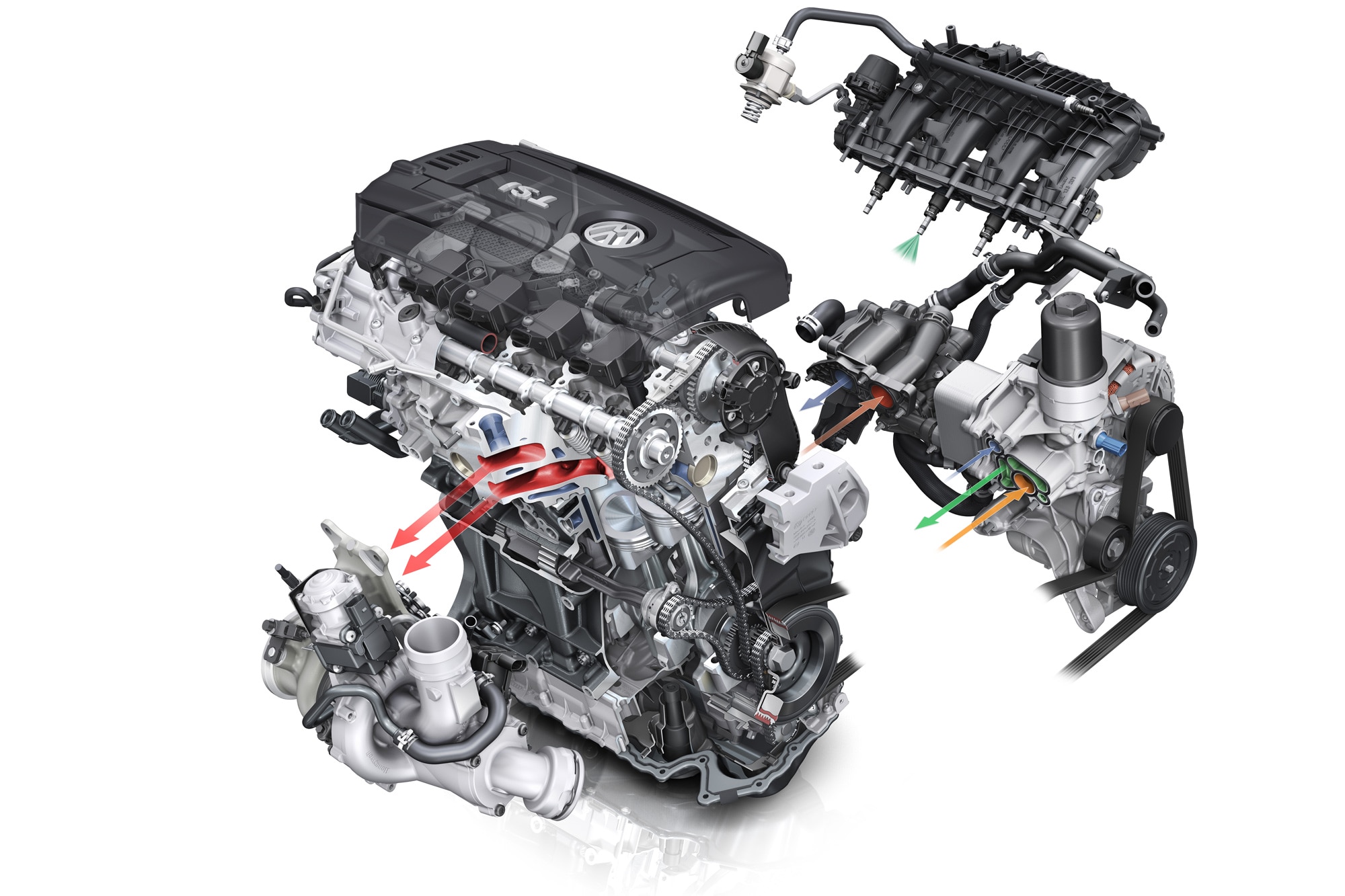Why Do VW Enthusiasts Love the EA888 Engine?
Versatile, compact, and easy to modify, this motor has achieved legendary status among Volkswagen fans.
 Volkswagen
Volkswagen
Volkswagen has a long history of building stout four-cylinder engines, which have formed the basis of its sporting GTI and GLI sub-brands for decades. Technological advancements in recent years have made these motors even more potent, opening up an entirely new realm of performance for much of the VW lineup.
Especially noteworthy is the EA888, one of the most celebrated versions of Volkswagen's 16-valve four-cylinder engine. Eminently tunable and packed with modern features, the EA888 has become a favorite among sport compact car enthusiasts.
 Volkswagen
Volkswagen
The EA888 Is Available in a Wide Range of Performance Levels
The EA888 debuted back in 2009 in both 1.8-liter and 2.0-liter displacements. It has since undergone a number of iterations. The latest version relies on a turbocharger and direct fuel injection to combine efficiency and power in a small-displacement package. Its variable valve timing feature allows it to generate strong low-end torque without compromising high-rpm horsepower. It incorporates its exhaust manifold design inside the cylinder head, thus facilitating better thermal management and packaging for its turbocharger.
The most potent version of the EA888, now in its fourth generation, is the 2.0-liter unit found in the Volkswagen Golf R, where it generates 315 horsepower and 295 pound-feet of torque. Slightly less power is on offer from versions of the engine found in the Audi Q3 and Q5 SUVs, the Volkswagen GTI hatchback, and the VW Tiguan SUV.
 Volkswagen
Volkswagen
Tuning the EA888 Is Relatively Easy, and Go-Fast Parts Are Plentiful
A big part of the EA888 engine's appeal is how easy it can be for owners to unlock more power by way of aftermarket tuning solutions.
Even early versions of the motor responded quite well to engine control unit (ECU) reprogramming, which could result in more power without the need to replace the stock turbocharger. Other potentially helpful modifications that some owners have undertaken include bolt-on air intakes, intercoolers, and downpipes, all of which help keep the car's intake air cool and improve its ability to get more air and fuel through the engine, which means more power. Output approaching 400 horsepower is possible with various upgrades working together in harmony.
Additionally, the EA888 can be tuned regardless of whether or not it's installed in a vehicle aimed at enthusiasts. This means performance-minded sport-utility and sedan drivers can access many of the same upgrades that are available to Golf R and GTI owners.
 Volkswagen
Volkswagen
How Reliable Is the EA888 Engine?
The EA888 does have some areas where problems commonly arise. Good maintenance habits, including oil changes at shorter intervals than VW specified, also tend to help these engines last longer. Later editions tend to be more reliable than the earliest iterations, which were known for high oil consumption and problems with the timing-chain tensioner. Water pump and thermostat assembly failures associated with the EA888 led to a 2022 class-action lawsuit settlement and a warranty extension for owners.
Written by humans.
Edited by humans.
 Benjamin Hunting
Benjamin HuntingBenjamin Hunting is a writer and podcast host who contributes to a number of newspapers, automotive magazines, and online publications. More than a decade into his career, he enjoys keeping the shiny side up during track days and always has one too many classic vehicle projects partially disassembled in his garage at any given time. Remember, if it's not leaking, it's probably empty.
Related articles
View more related articles